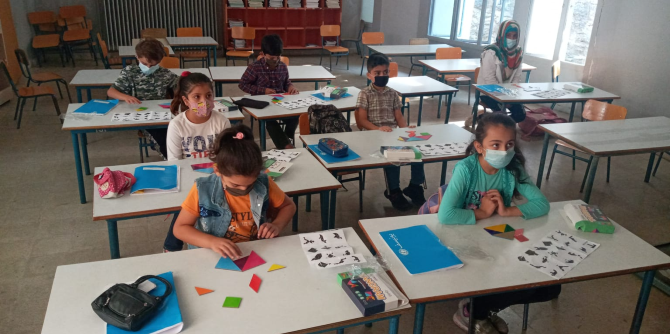Many parents had to cope with losing their jobs or part of their income at the same time as they were forced to home school. How did this affect their children’s learning and their mental health? Claudia Hupkau (CEP/ LSE), Ingo Isphording (IZA), Stephen Machin (CEP/ LSE) and Jenifer Ruiz-Valenzuela (CEP/ LSE) share their findings and warn these rising inequalities should be borne in mind as the government considers school closures again.
There is mounting evidence that the COVID-19 crisis has had an unequal impact on the employment prospects and earnings of different groups in society. Similarly, the costs of the school closures between March and July of 2020 are likely to be unequally distributed, with children from already disadvantaged households potentially experiencing larger adverse effects of home schooling.
We studied the effect of negative labour market shocks borne by parents during the crisis, and how much time and resources they were able to invest in their children. Using data collected in the UK before and during the pandemic, we show a growing inequality in labour market outcomes: fathers and mothers who were already disadvantaged are more likely to have suffered negative earnings and employment shocks.

Low educated parents, those on precarious job contracts without fixed salary or guaranteed hours and those working in locked-down industries are more likely to have experienced a partial or complete loss of earnings. These shocks have had an immediate intergenerational impact. Children whose fathers’ earnings dropped to zero are about 7.5 percentage points less likely to have received additional paid learning resources (such as tutoring or learning apps) compared to similar children whose fathers did not experience a drop in earnings.
Fathers whose earnings dropped to zero appear to substitute reduced paid learning resources with time. Their children received about 30 more minutes of help with schoolwork per day. We do not find any relationship between mothers’ labour market shocks and additional paid resources or time spent helping with schoolwork.
Those whose earnings dropped to zero in April 2020 also experienced negative effects beyond the purely economic. There is a substantial mental health worsening – of about 40% of a standard deviation – for fathers moving into zero earnings in April 2020. Mothers who suffered earnings reductions to zero or reduced earnings more generally also experienced a mental health deterioration by 36% and 23% of a standard deviation, respectively.
The quality of parent-child interactions is also impacted, but only for fathers. On the one hand, fathers whose earnings dropped to zero were less likely to talk regularly about things that matter with their children. On the other hand, they are also less likely to quarrel often with their children. For mothers, labour market shocks do not significantly impact their interactions with their children in terms of quarrelling or talking about things that matter.
Through school closures, long term costs are imposed on the affected cohorts of students, with learning losses impacting negatively on expected life-long income. Our results suggest that these sources might be further aggravated by an interaction between these two shocks when parents experiencing economic distress have to simultaneously care for their children when formal care is shut down. This interaction is likely to contribute to the expected rising inequality induced by the corona crisis. These costs and rising inequality have to be kept in mind when school closures are considered again as a response to upcoming waves of the pandemic.
This post represents the views of the authors and not those of the COVID-19 blog, nor LSE. It is an edited extract from the Centre for Economic Performance COVID Analysis Series No 15: Labour market shocks during the COVID-19 pandemic: inequalities and child outcomes.






1 Comments